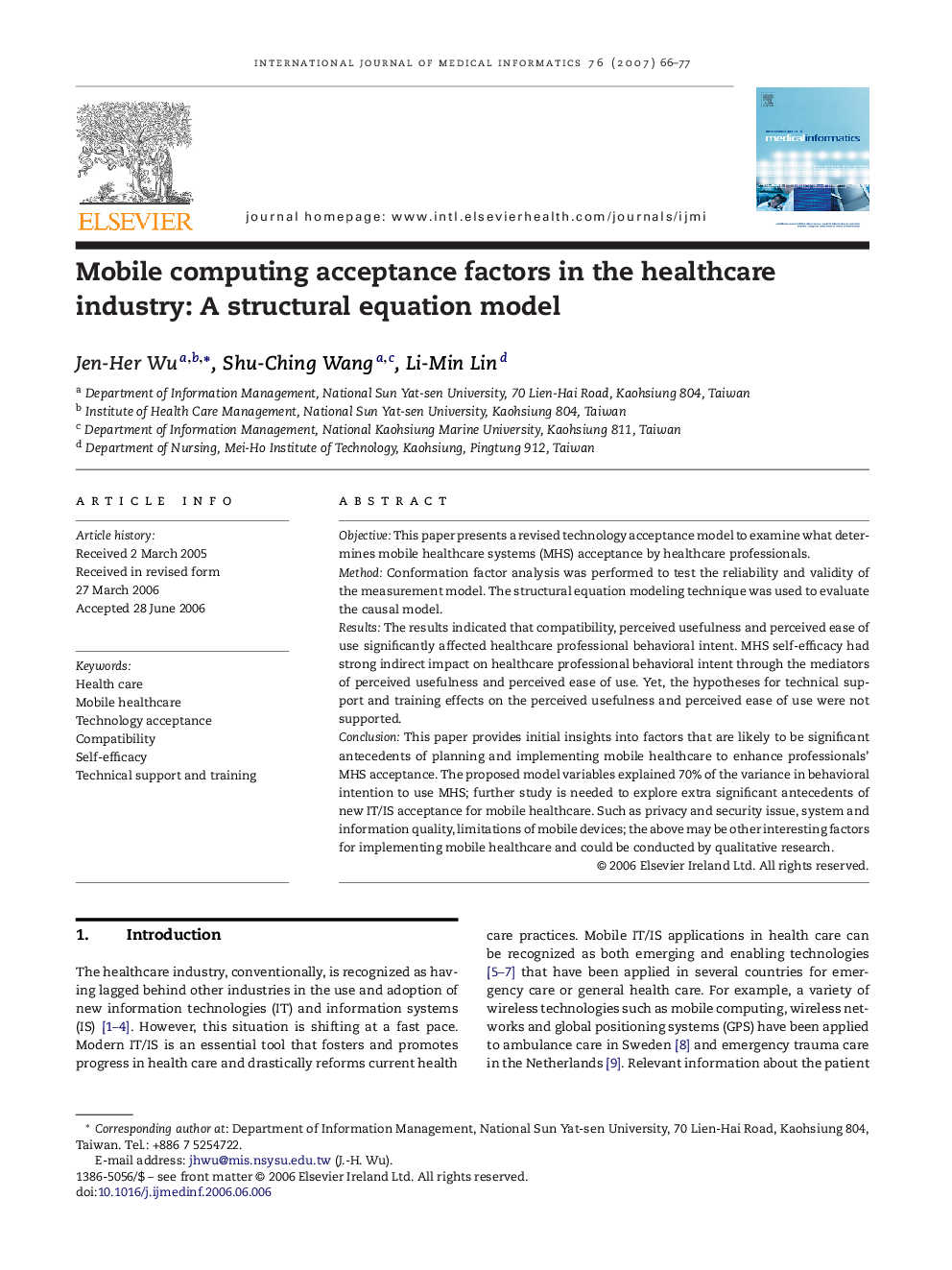| Article ID | Journal | Published Year | Pages | File Type |
|---|---|---|---|---|
| 516687 | International Journal of Medical Informatics | 2007 | 12 Pages |
ObjectiveThis paper presents a revised technology acceptance model to examine what determines mobile healthcare systems (MHS) acceptance by healthcare professionals.MethodConformation factor analysis was performed to test the reliability and validity of the measurement model. The structural equation modeling technique was used to evaluate the causal model.ResultsThe results indicated that compatibility, perceived usefulness and perceived ease of use significantly affected healthcare professional behavioral intent. MHS self-efficacy had strong indirect impact on healthcare professional behavioral intent through the mediators of perceived usefulness and perceived ease of use. Yet, the hypotheses for technical support and training effects on the perceived usefulness and perceived ease of use were not supported.ConclusionThis paper provides initial insights into factors that are likely to be significant antecedents of planning and implementing mobile healthcare to enhance professionals’ MHS acceptance. The proposed model variables explained 70% of the variance in behavioral intention to use MHS; further study is needed to explore extra significant antecedents of new IT/IS acceptance for mobile healthcare. Such as privacy and security issue, system and information quality, limitations of mobile devices; the above may be other interesting factors for implementing mobile healthcare and could be conducted by qualitative research.
